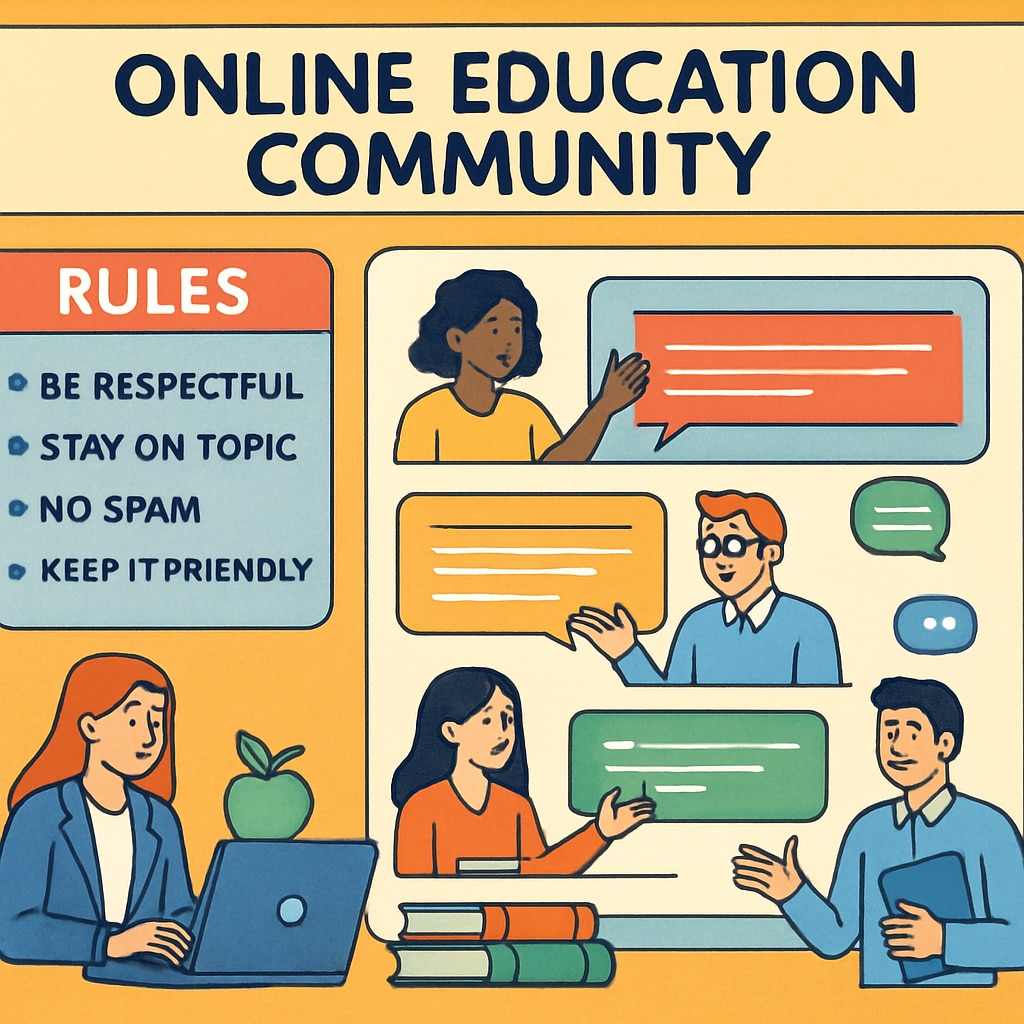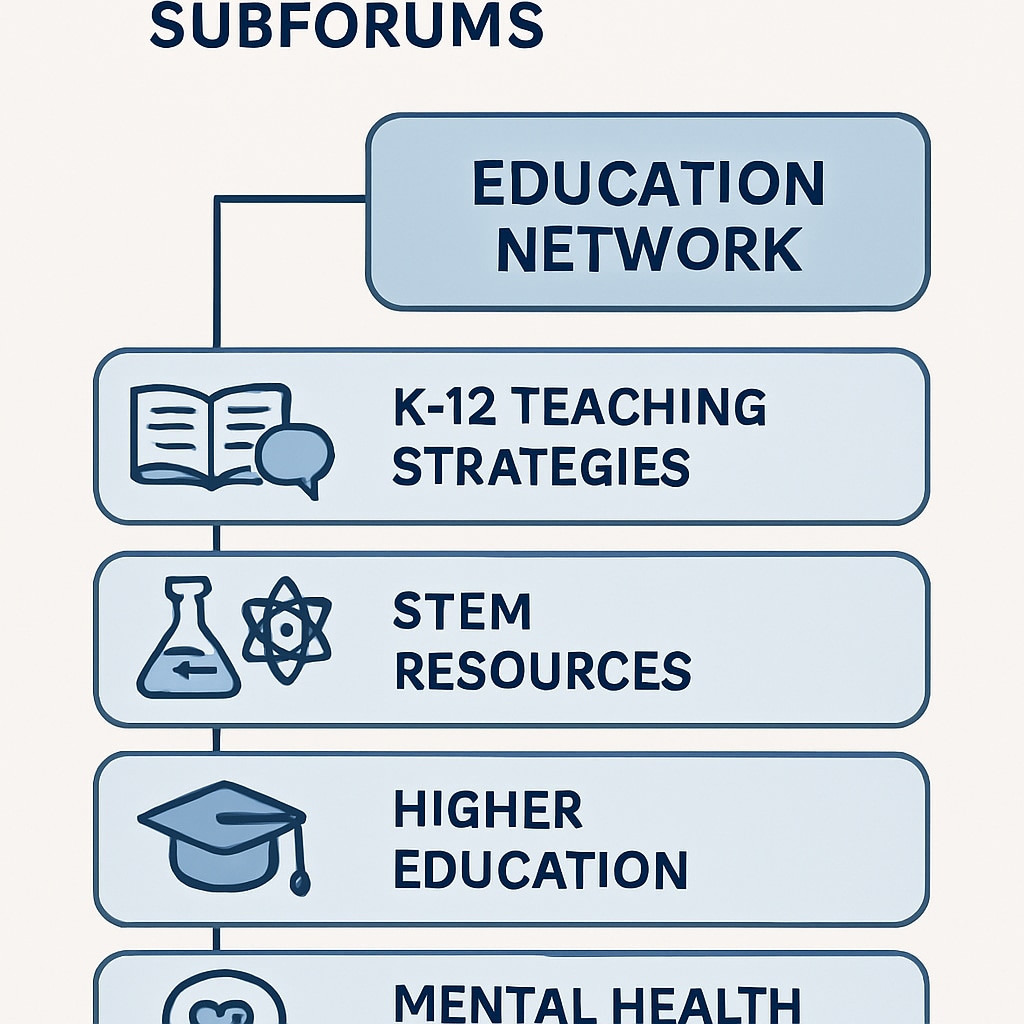In the digital age, community rules, education networks, and subforums are indispensable for K12 educators and parents navigating the ever-evolving world of education. Online platforms like Reddit’s r/Education offer a wealth of resources, connecting teachers, parents, and administrators in meaningful ways. These communities thrive on clear guidelines, structured subforums, and the collaborative exchange of ideas, making them a treasure trove for modern education. But how do these networks function, and how can educators maximize their benefits? Let’s dive deeper into the principles of high-quality education communities and their impact on teaching practices.
The Importance of Community Rules in Education Networks
Effective education communities on platforms like Reddit are governed by well-established community rules. These rules ensure respectful interactions, maintain focus on educational topics, and prevent spam or irrelevant content. For instance, r/Education outlines clear policies for posting, such as requiring evidence-based discussions and prohibiting self-promotion.
Community rules foster an inclusive environment where educators and parents feel safe to share ideas and challenges. For example, a teacher seeking advice on managing classroom behavior can confidently post their question, knowing they will receive constructive feedback rather than criticism. This structure enhances trust and encourages participation.
- Respectful Communication: Rules often emphasize respect, ensuring that all voices are heard.
- Topical Relevance: Members are encouraged to stay on-topic, which improves the quality of discussions.
- Moderation: Dedicated moderators enforce rules, keeping the community productive and welcoming.
By adhering to these principles, education networks become dynamic hubs for professional development and innovation.

Subforums as Specialized Resource Hubs
One of the greatest strengths of online education networks is their use of subforums (or subreddits) to address specific topics. For example, r/Education includes threads dedicated to K12 teaching strategies, special education, and even mental health resources for educators. These subforums allow users to explore focused content tailored to their needs.
Specialized subforums ensure that discussions remain relevant and actionable. A parent exploring homeschooling options, for instance, can easily find threads with lesson plans, curriculum advice, and peer reviews. Similarly, a high school teacher looking for STEM project ideas can join a subforum specifically for science educators.
Here are some examples of how subforums benefit users:
- Targeted Support: Subforums allow users to connect with others facing similar challenges, such as addressing learning gaps or integrating technology into lessons.
- Resource Sharing: Members can exchange lesson plans, classroom tools, and professional development courses.
- Networking Opportunities: Educators can form partnerships for joint projects or mentorship programs.
This structure ensures that no question goes unanswered and no resource remains underutilized.

Maximizing the Benefits of Education Networks
To fully leverage the potential of education networks, educators and parents should approach these platforms strategically. Here are some practical tips:
- Follow the Rules: Familiarize yourself with the community guidelines before posting to avoid misunderstandings and maximize engagement.
- Engage Actively: Don’t just browse; contribute to discussions by sharing your experiences or offering solutions to others’ problems.
- Utilize Search Functions: Many platforms have advanced search options to help you find relevant threads quickly.
- Join Multiple Subforums: Broaden your perspective by participating in various specialized subforums.
- Stay Updated: Subscribe to newsletters or follow community updates to stay informed about new resources.
By taking these steps, users can transform their time on education networks into meaningful professional development experiences.
The Future of Education Networks
As technology continues to shape the educational landscape, the role of online communities will only grow. Platforms like r/Education are already expanding their reach by incorporating multimedia resources, virtual events, and AI-driven content curation. These advancements promise to make education networks even more impactful for teachers and parents alike.
Ultimately, the success of these platforms hinges on their ability to maintain clear community rules, foster specialized subforums, and adapt to the changing needs of their users. By doing so, they will remain invaluable tools for fostering innovation, collaboration, and lifelong learning in the K12 space.
In conclusion, community rules, education networks, and subforums are vital for building strong, supportive ecosystems for educators and parents. By engaging with these platforms, K12 stakeholders can access a wealth of resources, share their expertise, and continually improve their practice.


